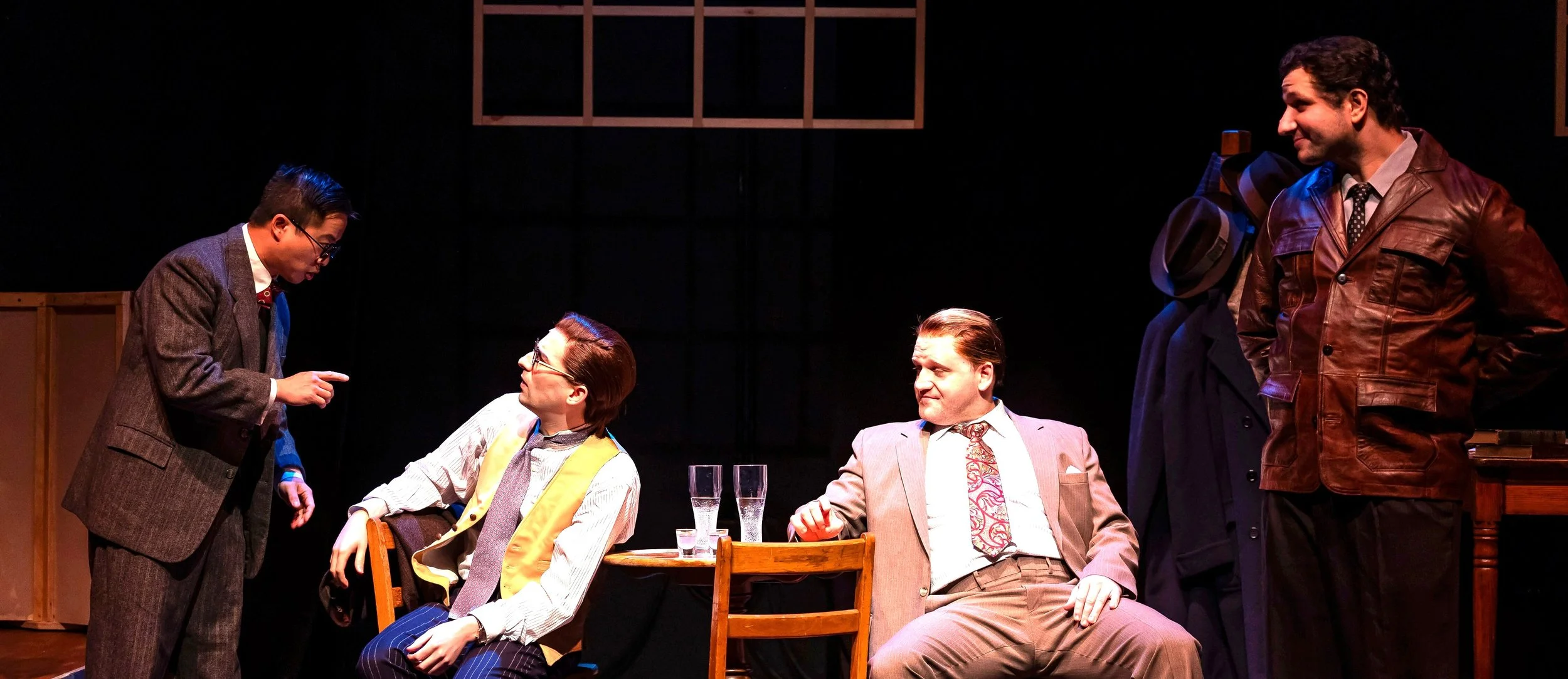Richard Strand’s Butler leaps to the forefront of comedies set during the Civil War—although it may well be the only comedy set in the Civil War that comes to one’s mind. Yet the setting is indubitable, and the laughs are plentiful, so if it stands alone in a genre of one, it doesn’t matter. The only drawback will be if it spawns a spate of Civil War comedies that prove inferior.
The four-character play, directed by Joseph Discher, takes place in a small general’s office at Fort Monroe, Va., at a crucial juncture—Virginia has seceded from the union the day before. The general, only recently been put in command, is Benjamin Franklin Butler, an irascible, sometimes pompous Union officer. He is attended by a Lt. Kelly, a strapping subordinate whose manner is by turns unyielding and abashed in the face of Butler.
As the play begins, Kelly has unwelcome news for Butler: “There is a Negro slave outside who is demanding to speak with you.” A scene ensues in which Butler berates Kelly for a number of reasons, including choices of words: “demands” vs. “requests,” “surprised” vs. “astonished.” The scene is labored and makes one fear that the play isn’t going anywhere soon, but bear with it: these language debates pay off richly in the second half.
In Ames Adamson’s performance, Butler puts on a lot of bluster. He’s chafing in his new post, because he knows he doesn't have the background of other generals—he was a lawyer in civilian life not so long ago—and because he suspects that Benjamin Sterling’s Kelly, a graduate of the military academy at West Point, resents being under his command. Yet, as the plot unfolds, Adamson shows an unexpected tolerance in the character, and Butler’s acceptance that he must stand up against the orders of President Lincoln, the Cabinet and all the generals superior to him. It is a precarious position, because the war has begun and the Army of the Confederacy is all around.
The Negro slave, Shepard Mallory (John G. Williams), seeks asylum at Fort Monroe, but Lincoln’s policy requires all fugitive slaves to be returned to their owners in the South because they are escaped property. Strand touches briefly but vividly on the horrors of slavery, as Mallory shows the scars on his back, but the meat of the play is the debate between general and slave about asylum. As in many classic comedies, the servant is a shrewd cookie, and Williams charts Mallory’s course of defiance and submission as he plays off Butler’s expectations. The character is insufferable at times, sympathetic at others, and Williams’s skillful performance keeps the right balance. (The production is from the New Jersey Repertory Company, and it’s heartening to be reminded of the high quality of regional theater.)
Strand brings Act I to a strong climax, as Mallory warns Butler about the man who is coming to retrieve him and take him back to a certain death at the hands of his cruel master. In Act II, the emissary, Major Cary (David Sitler), enters blindfolded (Steve Beckel’s sound design provides some delicious laughs in the moments leading to Cary’s entrance). The scene that follows is worthy of Shakespeare, as Butler summons his lawyerly skill to find a loophole to deny Cary his repossession of Mallory—which the historical Butler did. The scene is reminiscent of Portia’s springing the trap with “Tarry a little, Jew” in The Merchant of Venice.
Although the sparring between Butler and Mallory is the main event, the two supporting players are equally good. Sterling charts Kelly’s course from a man who has no experience of Negroes, and no interest in them, to one who finds a conscience and joins Butler and Mallory for a brotherhood-of-man finale. As the representative of the South, Sitler’s Cary is suitably arrogant and unlikable, and gets what he deserves.
A strong, satisfying comedy that worked no less well last summer with a different cast at Barrington Stage in the Berkshires, Butler makes one want to hear more from Richard Strand.
The New Jersey Repertory Company’s production of Butler plays at 59E59 Theaters (59 E. 59th St., between Park and Madison) through Aug. 28. Evening performances are at 7 p.m. Tuesday through Thursday and 8 p.m. Friday and Saturday. Matinees are at 2 p.m. Saturday and 3 p.m. Sunday. For tickets, call Ticket Central at (212) 279-4200 or visit 59e59.org.








